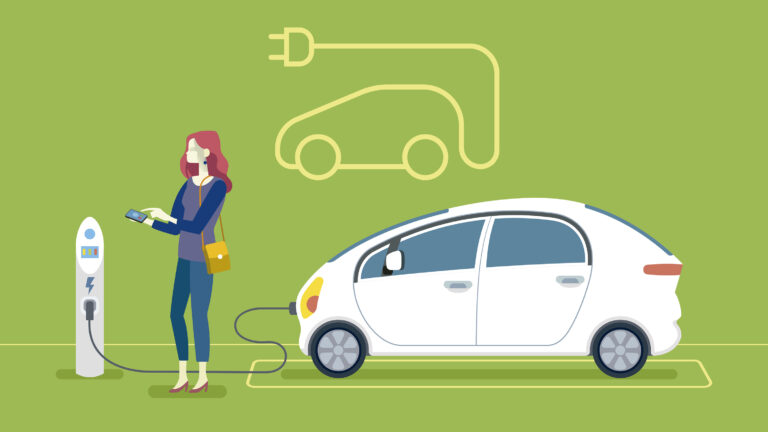Even in the USA, car manufacturers are moving into reverse on electric cars

U.S. automakers have been eager to help advance the electric vehicle agenda for the last decade or so. Ford, GM and all the European and Japanese majors have invested billions in a new range of fully electric vehicles in anticipation of mass adoption. Now, however, they are putting on the brakes, if not even shifting into reverse.
In July last year, the Environmental Protection Agency proposed new, tougher fuel efficiency standards aimed at encouraging greater adoption of electric vehicles. The proposal called for raising fuel efficiency requirements from 49 miles per gallon to 58 miles per gallon, or from 20.5 km/l to 24.6 km/l on a fleet average basis. The deadline to reach the new goal was set for 2032.
At the time, the auto industry didn't have much to say. Then, when the implications of the new regulation began to be felt, they wrote a letter to the administration complaining about the risk of billions in fines if they did not meet the goals proposed by the EPA.
According to the regulator, the review would have encouraged automakers to produce more fuel-efficient ICE cars, rather than using their EV cars as a license to continue producing high-emission ICE cars. In reality, things did not go that way and are not going as desired. The problem essentially lies in the fact that raising the average through the introduction of electric cars is not proving economically interesting and increasing efficiency has a limit.
As the EPA said at the time, “Encouraging the adoption of electric vehicles can reduce oil consumption, but giving too much credit to this adoption can lead to an increase in net oil use because it provides lower fuel economy between conventional vehicles, which represent by far the majority of vehicles sold."
The debate died down towards the end of the year, but came back into focus earlier this year, when automakers began reporting 2023 results and revealed that their electric vehicle initiatives are you are always at a loss. This revelation comes amid news of record electric vehicle sales in the United States last year and optimistic forecasts for an even stronger year in 2024.
Last year, major Detroit companies warned that under the new rules, they could face more than $10 billion in fines if they fail to meet the new, tougher fuel efficiency standards . They had also said compliance costs would rise from about $550 per vehicle to more than $2,100 if the new requirements were approved. Now the company has said, albeit indirectly, that it is unable to increase EV sales at the rate the federal government requires.
Last year, electric vehicle sales accounted for 8% of the total. The aim of the new fuel efficiency standard is to force an increase in sales so that by 2032 electric vehicles represent 67% of total car sales. Electric vehicle companies say this is virtually impossible.
Indeed, despite the generous subsidies that the federal government and state governments have allocated to electric vehicles, the inherent disadvantages of current electric vehicle technology make them difficult to sell and the subsidies will not be around forever. So thinking of selling electric vehicles with current technology beyond current limits is turning out to be a dream.
Last year, sales of electric vehicles hit a record, but demand began to drop towards the end of the year, sparking a price war between automakers. This war, however, has failed to bring about a strong recovery in sales growth, at least for the time being. Issues such as insufficient charging infrastructure and insurance continue to plague the industry. And the Chinese are coming.
European automakers sounded the alarm late last year, complaining that unless governments do something to protect them, low-cost Chinese electric vehicles could destroy them. But low-cost Chinese electric vehicles are also arriving in North America, as suggested by an article in the Wall Street Journal according to which BYD, a leading company in the electric vehicle sector, is considering building a factory in Mexico and this would crowd out any tariffs that the US government could put in place to defend its national industry, because the North American trade agreement prevents the creation of tariffs across the Rio Grande.
So, not only are US and international automakers being forced to accelerate the shift to an all-electric vehicle lineup – a very expensive step – but they now face competition from much cheaper Chinese EVs.
Charging infrastructure needs to expand very quickly to stimulate demand for electric vehicles, but there is not enough private capital willing to take risks, as risk takers would have to wait quite a while to see economic returns. Then there are major problems of maintenance of the installed points and also of compatibility of the various networks, with multiple standards and charging applications used in the USA. Standardization is a necessary factor for the introduction of such a disruptive innovation as the EV car, but it seems that the industrial sector is not yet ready.
The cars themselves have to become cheaper even without paying subsidies. Various manufacturers have promised cars at cheap prices, but so far they have not yet succeeded. We probably lack the mature technologies to be able to produce EV cars at attractive prices, or we lack the economies of scale to be able to obtain the promised prices.
So the big American auto companies are pushing for all proposed legislation that would lead to EV cars to be blocked and not proceed. And since it's an election year, they might even succeed.

Thanks to our Telegram channel you can stay updated on the publication of new Economic Scenarios articles.
The article Even in the USA, car manufacturers are moving into reverse on electric cars comes from Economic Scenarios .
This is a machine translation of a post published on Scenari Economici at the URL https://scenarieconomici.it/anche-negli-usa-le-case-autmobilistiche-ingranano-la-retromarcia-sulle-auto-elettriche/ on Sun, 18 Feb 2024 13:57:25 +0000.
